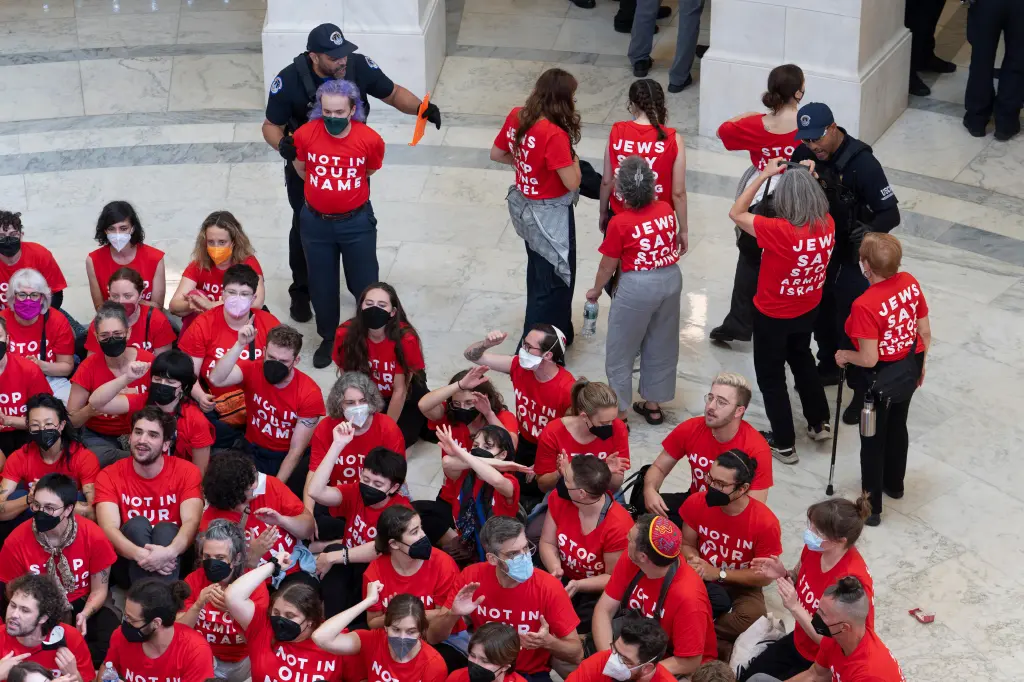Vice President Kamala Harris met with Israeli Prime Minister Benjamin Netanyahu on Thursday, delivering a forceful message urging an end to the Gaza war and emphasizing the critical need to secure the release of hostages held by Hamas since October 7. This high-stakes meeting comes at a crucial juncture in the Israel-Hamas conflict, which has now stretched into its ninth month.

Harris described her conversation with Netanyahu as “frank and constructive,” reaffirming Israel’s right to defend itself while expressing deep concern over the mounting death toll in Gaza and the dire humanitarian situation. With over 39,000 Palestinians reported dead since the conflict began, the Vice President’s tone reflected a growing urgency within the Biden administration to find an endgame to the brutal war.
There has been hopeful movement in the talks to secure an agreement on this deal,” Harris told reporters after the meeting. And as I just told Prime Minister Netanyahu, it is time to get this deal done.” Her comments came just a day after Netanyahu’s fiery speech to Congress, in which he vehemently defended the war and vowed “total victory” against Hamas, with relatively little mention of cease-fire negotiations.
The Vice President’s meeting followed separate talks between Netanyahu and President Joe Biden earlier in the day. The White House reported that Biden discussed with Netanyahu “the need to close the remaining gaps, finalize the deal as soon as possible, bring the hostages home, and reach a durable end to the war in Gaza.” The leaders also addressed improving aid flow into Gaza and the ongoing threat posed by Iranian-backed militant groups.
Harris, in her remarks, sought to navigate the complex nature of the conflict, stating, “Too often, the conversation is binary when the reality is anything but.” While condemning Hamas’ brutality, she also emphasized the devastating humanitarian impact of the war on Gaza’s civilian population.

“What has happened in Gaza over the past nine months is devastating,” Harris said. “The images of dead children and desperate, hungry people fleeing for safety, sometimes displaced for the second, third or fourth time. We cannot look away in the face of these tragedies. We cannot allow ourselves to become numb to the suffering. And I will not be silent.”
The Vice President’s meeting with Netanyahu also carries significant political implications. As the likely Democratic presidential nominee, Harris’s handling of this sensitive diplomatic engagement is being closely watched. Her performance is under scrutiny from both the political left, who argue for a stronger stance against Israel’s military actions, and Republicans, who seek to portray her as insufficiently supportive of Israel.
Harris’s personal connection to Israel, including her history of raising funds for tree planting in Israel as a child and her ties to pro-Israel groups, adds another layer to her engagement on this issue. Her husband’s Jewish heritage and her installation of a mezuzah at the Vice President’s residence further underscore her personal ties to the Jewish community.

The meeting also comes amid ongoing negotiations for a U.S.-backed, three-phase deal to bring home remaining hostages and establish an extended cease-fire. The White House has been actively pushing for this agreement, seeing it as a potential legacy-affirming achievement for the Biden administration.
Netanyahu, facing his own political challenges at home, is navigating pressure from hostage families demanding a cease-fire and far-right members of his coalition insisting on the elimination of Hamas. His speech to Congress on Wednesday, which defended Israel’s conduct during the war and criticized accusations of war crimes, highlighted the delicate balance he is trying to maintain.
As protests against Netanyahu’s visit unfold in Washington, with some turning violent, Harris condemned those who used rhetoric praising Hamas or engaged in destructive behavior. The Vice President’s strong stance against anti-Semitic rhetoric and actions, including her condemnation of pro-Hamas graffiti near the U.S. Capitol, underscores the complex political landscape surrounding the Israel-Hamas conflict.



